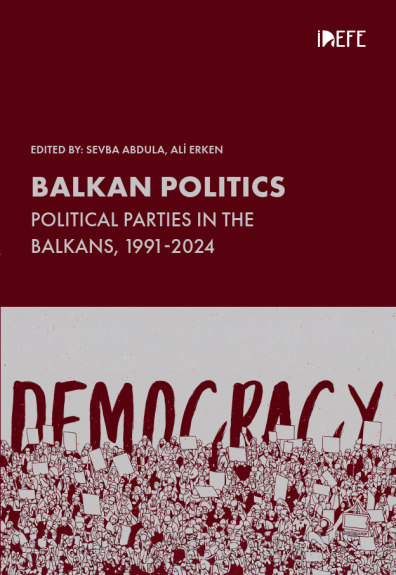Balkan Politics
Process Tracing the Political Course, Ideology and Transformation of the Democratic Party of Socialists (DPS) in Postcommunist Montenegro
Authors
-
Idlir LikaAssist.Prof.Dr., Ibn Haldun University-Türkiye
Synopsis
Up until its defeat in the August 2020 parliamentary elections, the communist successor party in Montenegro, Democratic Party of Socialists (DPS), represen-ted the only uninterrupted ex-communist incumbency in Southeastern Europe. This chapter will process trace the political course, ideology and transformation of this party throughout the 30 years that it held the reins of power in the tiny Adriatic republic. In so doing, the chapter will also analyze the transformation of the Montenegrin party system from competitive authoritarianism and one-party dominant system to a more inclusive but fragile democracy recently. I will rely on fieldwork that I did in Montenegro in April 2019, during which I conducted se-mi-structured elite interviews with party leaders and deputy leaders (from Mon-tenegrin, Serbian, Bosniak and Albanian parties), current and former ministers, members of parliament and Montenegrin academics and public intellectuals. Besides this, I will also draw on secondary sources to properly contextualize my arguments.
Copyright
Copyright (c) 2025 Sevba Abdula (Volume editor); Amina Hadžić, Harun Nuhanović, , Idlir Lika, Sava Mitrović, Adnan Mestan, Thomas Lazaridis, Zoran Dabetić, Mira Šorović, Salich Tzampaz, Magdelina Kitanova (Chapter Author); Ali Erken (Volume editor)
License

This work is licensed under a Creative Commons Attribution-NonCommercial 4.0 International License.
Process Tracing the Political Course, Ideology and Transformation of the Democratic Party of Socialists (DPS) in Postcommunist Montenegro
Downloads
Publication Information
-
Publication TypeChapter
-
Volume
-
Pages153-169
-
PublishedJune 5, 2025
-
Series
-
Series PositionResearch 11
Abdula, S., & Erken, A. . (Eds.). (2025). Process Tracing the Political Course, Ideology and Transformation of the Democratic Party of Socialists (DPS) in Postcommunist Montenegro. In A. Thaçi, Balkan Politics: Political Parties in the Balkans, 1991-2024: Vol. Research 11 (pp. 153-169). Idefe Publications. https://doi.org/10.51331/EB09IL
